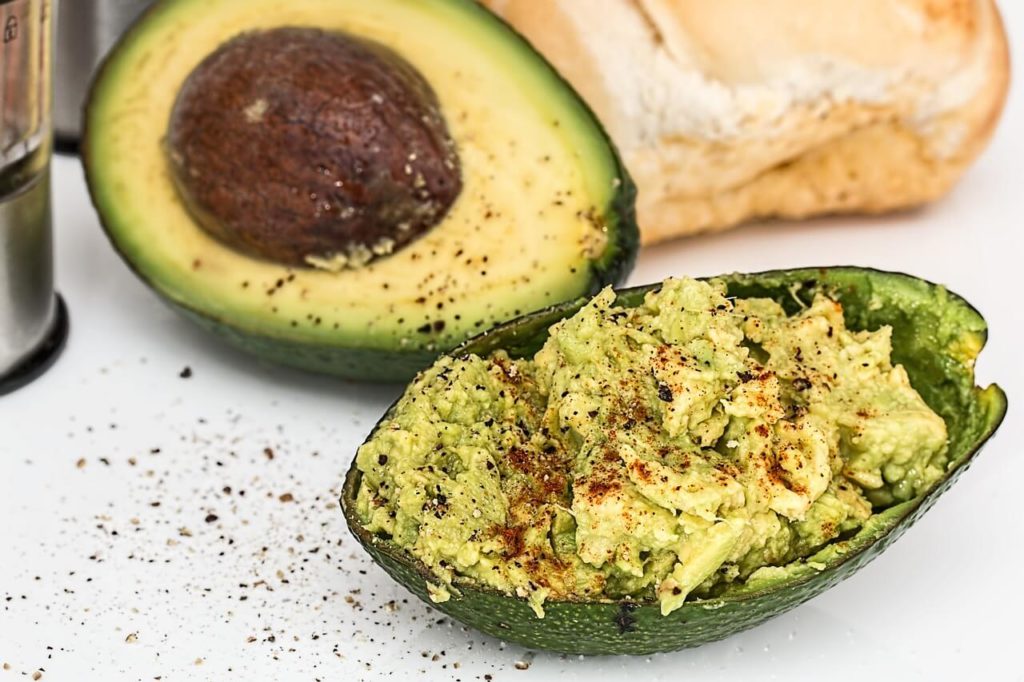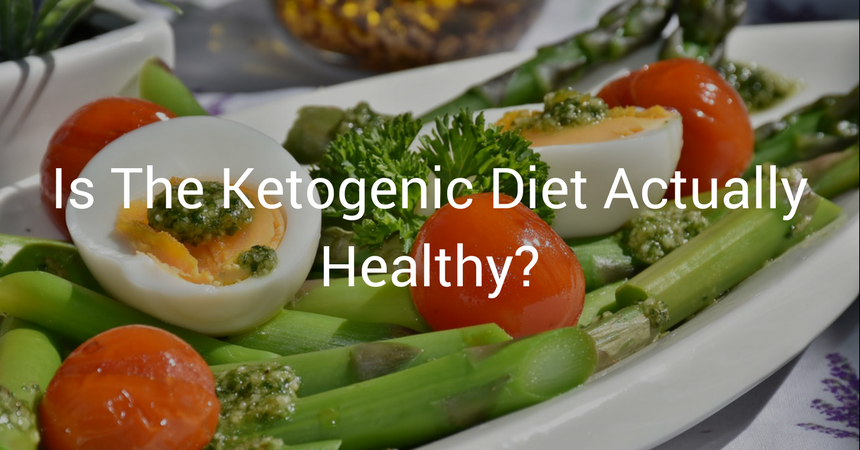Table of Contents
Heard about the growingly popular ketogenic diet?
Heard about how amazing being in a state of ketosis actually is?
Heard about people gorging on things like bacon, butter, and fatty cuts of meat?
If you keep up with the health industry (or, at least stay aware of current health trends), you’ve probably heard talk of the ketogenic diet.
This innovative way of dieting probably has you wondering how such a concept could actually work.
How can a high-fat diet actually allow you to lose weight?
Moreover, isn’t fat dangerous and bad? Isn’t it unhealthy for you?
Well, we’ll give you the answers to all of these questions, and many more that you might not have thought of.
Hopefully, by the end of the article, you will see that the answer to the question “Is the ketogenic diet healthy?” is a resounding YES!
The Ketogenic Diet: Some Background
Here’s a simple explanation of the ketogenic diet: cut out all sugars and refined carbohydrates.
Ideally, you’ll want 5-10% of your calories from non-starchy vegetables, like capsicum (peppers), zucchini, and cauliflower.
You then consume 65-70% of your calories from fat.
The remainder of your calories comes from good sources of protein.
Forcing your body into a carb-restricted state makes your brain turn to fat as its primary source of energy.
Your liver converts fats into ketone bodies, which are used as fuel for your brain.
Low-carbohydrate diets have been around for awhile, however, this stuff isn’t totally new!
Take the Atkins Diet, for example.
Dr. Robert Atkins popularized the diet in the 70’s as a low carb, weight loss regimen.
Studies have shown that it’s quite effective!
Even more intriguing, the ketogenic diet came about in the early 1900’s as a way to treat and control seizures caused by epilepsy.
(By the way, it’s still used as a means of therapy today with children and adults who are epileptic!)
Related: Epilepsy Society – Ketogenic Diet
The diet was abandoned, however, with the introduction of anticonvulsant drugs.
Here are several other benefits of a ketogenic diet that make it quite a healthy option, if you’re interested in trying it.
The Saturated Fat Misconception

Many opponents of the ketogenic diet claim it’s too high in fats that are saturated, such as butter, coconut oil, and fatty meats.
Claims are that saturated fat raises blood cholesterol levels which increases the risk of developing heart disease.
Turns out, however, that such logic is rather outdated, and new science is discovering that cholesterol levels aren’t exactly the cause of heart disease.
While saturated fat may lead to increased cholesterol levels, it appears that inflammation is more of a factor in the development of heart disease than total cholesterol levels.
What causes inflammation in the body?
Carbohydrate-heavy foods, like sugars, grains, and legumes.
Do you consume any of these foods on a ketogenic diet?
Nope.
In fact, many forms of saturated fat (consumed from the correct source) are ridiculously beneficial to human health!
Ingredients such as coconut oil are high in saturated fat but incredibly healthy for humans, offering heart-protective benefits, anti-inflammatory benefits, and much more!
Coconut oil and its derivative, MCT oil, are both common fats that many of us who are on ketogenic diets consume on a regular basis.
Other healthy fats like grass-fed butter are also excellent for your health but are commonly demonized because of their saturated fat content.
To sum everything up, people may criticize your diet due to its high saturated fat content.
If you consume healthy fat that’s as unrefined and untampered with as possible, however, you can healthily consume saturated fat on a ketogenic diet.
Ketogenic Diet and Weight Loss
A ketogenic diet is a perfect tool for weight loss.
Remember when we talked about the transition from carbohydrates to fats as the body’s primary source of energy?
This transition changes the type of weight that you burn off when you exercise on a ketogenic diet.
When you consume fats as your primary source of fuel, your body can’t turn to carbohydrates as its primary source of energy.
It turns to fat, instead, and the body sheds fat as opposed to what it initially shed: carbohydrate-borne fat.
When you consume foods high in sugar and carbohydrates, your pancreas releases a hormone called insulin, in order to normalize blood sugar levels.
Insulin, however, signals to your body that it needs to store fat.
This is why consuming a high-carbohydrate diet often leads to weight gain.
None of this is happening on a ketogenic diet; instead of burning the fat caused by the insulin response, you’re purely burning the fat you consume in your diet.
Along with physical activity, this induces significant weight loss!.
Ketosis, Food Selection, and Satisfaction

When you’re on a ketogenic diet, you’re less likely to crave food.
There are two reasons for that.
Firstly, fats are almost twice as caloric, by the gram, than carbohydrates.
Because of this, they’ll fill you up quicker and longer, keeping your hunger and snack cravings under control.
Secondly, the lack of carbohydrates consumed on a ketogenic diet makes blood sugar spikes and crashes nearly impossible which, in turn, help reduce cravings.
When your blood sugar constantly fluctuates, it’s easy to turn to snacks or simple carbohydrates to alleviate feelings of low blood-sugar.
This elicits a vicious cycle, causing addictions to junk foods and quickly processed and refined carbohydrates.
None of this occurs on a ketogenic diet because, as we said, you’re consuming almost no carbohydrates or sugars to begin with!
Another awesome benefit of a ketogenic diet is the food selection.
Foods that are demonized like eggs, bacon, and butter, are all golden choices for consumption on a ketogenic diet!
As long as they’re from high-quality sources, you can indulge in foods that you probably only eat on occasion.
Remember to stick to your macronutrient ratios!
The Big Picture
We just listed a ton of benefits to the ketogenic diet, but there certainly are more.
For instance, when you’re in a state of ketosis, amazing things tend to happen.
Your blood sugar levels drop.
Your HDL cholesterol (the “good” stuff) tends to soar.
You feel more alert.
You feel great.
Along with the benefits we listed above, it’s hard to make the argument that a ketogenic diet is unhealthy.
From weight loss to epileptic therapy, a ketogenic diet has a large number of beneficial uses.
You might want to make the switch today!
Want to learn more about healthy fats like coconut oil and MCT oil? Learn more right here!


Free Shipping
On orders over $149$14 Flat Rate Shipped fast and Australia-wide